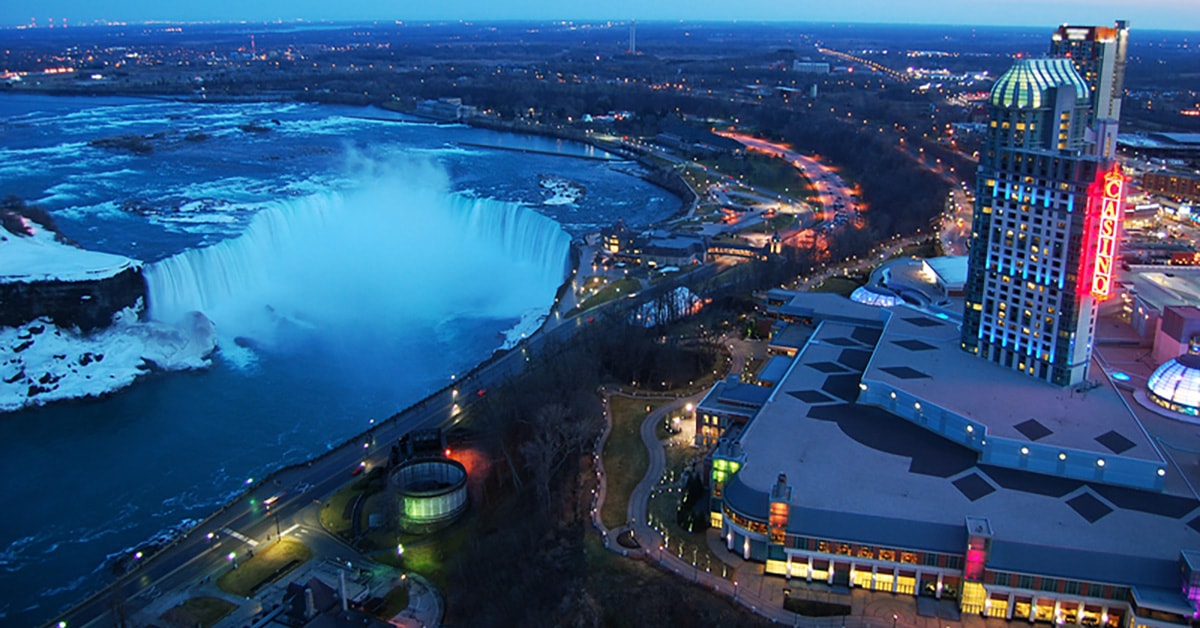The Legal Landscape of Online Casinos in Canada

Historical Background of Online Gambling Laws in Canada
Online gambling has a unique trajectory in Canada, marked by evolving legislation and shifting societal attitudes. The history of these laws provides important context for understanding the current legal landscape.
The Emergence of Online Casinos
The Internet revolution in the late 20th century gave rise to a new form of entertainment: online casinos. As technology advanced, so did the casino industry, adopting digital platforms to reach a wider audience. Canadians quickly embraced these virtual gaming spaces, creating an urgent need for regulatory measures.
Originally, the Canadian legal system didn't explicitly acknowledge online gambling. Laws were primarily focused on physical casinos and gaming houses. The advent of online casinos posed a significant challenge to this traditional legal framework. Policymakers struggled to apply pre-existing legislation to this new medium of entertainment, leading to a period of legal ambiguity.
Evolution of Gambling Laws
The Canadian government soon recognized the need for regulatory evolution in the face of technological advancements. The legal landscape gradually shifted from one of uncertainty to a more comprehensive regulatory structure.
In 2001, the Criminal Code was amended to include provisions related to internet-based gambling. This paved the way for provinces to license and regulate online casinos within their borders. This was a significant development in Canadian gambling legislation, marking a shift towards provincial autonomy in online casino regulation.
Moreover, the Kahnawake Gaming Commission, located within the Mohawk Territory of Kahnawake in Quebec, emerged as a key figure in the online gambling industry. By hosting one of the world's largest data centres dedicated to iGaming, it played a crucial role in shaping the future of online gambling in Canada.
This evolution reflects Canada's commitment to staying abreast of technological advancements, creating a balance between responsible gambling, consumer protection, and the economic benefits of online casinos. As online gambling continues to evolve, so too does its legal landscape, prompting a dynamic, ongoing discussion about the best ways to regulate this burgeoning industry.
The Legal Framework for Online Casinos in Canada
The legality of online casinos in Canada is a complex matter, governed by a mix of federal, provincial, and Indigenous laws. To fully comprehend this framework, it's vital to explore its three main components: The Criminal Code of Canada, provincial and territorial regulations, and the Kahnawake Gaming Commission.
The Criminal Code of Canada and Gambling
The Criminal Code of Canada serves as the principal federal legislation guiding gambling activities, including online casinos. Initially, it did not encompass the digital gaming industry; however, amendments made in 2001 acknowledged online gambling's increasing prevalence.
Section 207 of the Code permits provinces and territories to oversee and regulate gambling in their jurisdiction, including online casinos. The stipulation that an online casino must be "conducted and managed" within the province led to an interesting interpretation – if the servers hosting the casino were physically located in the province, the casino would be deemed legal.
Provincial and Territorial Regulations
Building on the provisions of the Criminal Code, each Canadian province and territory has the power to formulate its own gambling regulations. As a result, there is significant variation in the legal landscape of online casinos across Canada.
For instance, the Ontario province has been proactive in developing a comprehensive framework for online casinos. A good example of a well-regulated online casino is Jackpot City, which has received positive feedback from players in the region. You can read more about it in this Jackpot City Casino review.
The Role of the Kahnawake Gaming Commission
Another significant player in the Canadian online casino regulatory scene is the Kahnawake Gaming Commission. While the Commission is located geographically within Canada, it operates under the authority of the Kahnawake Mohawk Territory, a recognized sovereign Indigenous nation.
Since 1996, the Kahnawake Gaming Commission has been issuing licenses to online casinos worldwide, including Canada. It operates one of the world's largest internet gaming data centres and has established itself as a respected regulatory authority in the online casino industry.
The legal framework of online casinos in Canada is a multi-faceted one, with each of its three elements playing a significant role. A comprehensive understanding of this system is key to navigating the dynamic and complex landscape of Canadian online gambling laws.
The Implication of the Canadian Laws for Players
Canadian online gambling laws have direct implications for players, who must understand their rights and potential legal consequences. Understanding these laws helps players make informed choices about their online gambling activities.
Player Rights and Protections
Canadian laws offer significant rights and protections to players. Online casinos must maintain transparency, fairness, and responsible gaming standards. Furthermore, privacy laws ensure the protection of personal information. Players are entitled to withdraw their winnings without undue hindrances, provided they comply with the terms and conditions of the online casino.
A crucial element of player protection in Canada is the requirement for casinos to promote responsible gambling. Casinos must offer resources to help players understand and manage their gambling habits. This might include self-exclusion programs, deposit limits, and informational resources on problem gambling.
Here's a summary of key player rights and protections:
| Rights & Protections | Description |
|---|---|
| Fair Play | Games must be free from manipulation, ensuring fair outcomes for all players. |
| Privacy | Personal data collected by casinos must be protected and used responsibly. |
| Access to Winnings | Players are entitled to access their winnings in a reasonable time frame. |
| Responsible Gambling Resources | Casinos must provide resources to help players manage their gambling habits. |
Legal Consequences for Violations
Although online gambling is largely legal in Canada, players should be aware of potential legal consequences. Participating in illegal online gambling activities could result in penalties, including fines or prosecution. Moreover, players might face legal consequences for trying to cheat or manipulate online casino games.
Age and Identity Verification
Finally, one of the most crucial aspects of Canadian online gambling law is the requirement for age and identity verification. All players must prove they are of legal age (usually 19, except in Alberta, Manitoba, and Quebec where it is 18) and provide proof of identity. This step is crucial to preventing underage gambling and ensuring the integrity of the online gambling environment.
Canadian online gambling laws create a robust framework for protecting players and maintaining a fair, transparent, and responsible gaming environment. It is up to players to understand these laws and make informed decisions about their online gambling activities.
The Implication of the Canadian Laws for Online Casino Operators
Just as players are bound by the laws governing online casinos, operators too must navigate the Canadian legal landscape with care. This involves understanding licensing requirements, adhering to advertising regulations, and complying with taxation rules.
Licensing Requirements
Operating an online casino in Canada requires a license issued by the relevant provincial authority or the Kahnawake Gaming Commission. These licensing bodies mandate strict requirements to promote fairness, transparency, and integrity in the online casino industry.
Licensed operators are subject to regular audits and must ensure that their gaming software is free from manipulation. Furthermore, they're required to implement measures to protect player data and promote responsible gambling.
Here's an overview of key licensing requirements:
| Licensing Requirements | Description |
|---|---|
| Gaming Software | Must be fair and free from manipulation. Regular audits are required. |
| Player Data Protection | Operators must implement measures to protect player data. |
| Responsible Gambling | Operators must promote responsible gambling and provide resources for players. |
Regulations on Advertising
The advertising of online casinos is also regulated in Canada. Operators must ensure their marketing practices are truthful, non-misleading, and in line with responsible gambling principles. For instance, advertisements cannot target minors or suggest that gambling is a way to solve financial problems.
Taxation of Online Casino Revenue
Regarding taxation, online casinos are treated like any other business in Canada. They are required to pay taxes on their revenue according to Canadian law. However, the specifics can vary based on the province or territory.
Understanding these laws and regulations is vital for online casino operators in Canada. Non-compliance can result in hefty fines, loss of license, or other penalties. It's therefore essential for operators to stay abreast of legal developments and ensure they are fully compliant with Canadian law.
Future of Online Casino Laws in Canada
Given the rapid evolution of the online casino industry, Canadian gambling laws are likely to continue evolving to keep pace. Recent legal changes already hint at future trends, shaping a new era of online gambling regulation in the country.
Recent Legal Changes and Their Impact
Several significant legal changes have recently influenced the online casino landscape in Canada. In 2021, Bill C-218 was passed, amending the Criminal Code to legalize single-event sports betting. This move was hailed as a major breakthrough, opening new avenues for online casino operators.
These changes are impacting the Canadian online casino industry in several ways:
- Increased Competition: With single-event sports betting now legal, a surge in new operators entering the Canadian market is expected.
- Economic Boost: The growth of the online casino industry is predicted to boost local economies, creating jobs and increasing tax revenues.
- Enhanced Player Protection: More competition often leads to better consumer protection as operators strive to win player trust.
Future Legal Trends and Predictions
Looking ahead, we can anticipate a few key trends in the legal landscape of online casinos in Canada:
- Stricter Regulations: As the industry grows, stricter regulations may be introduced to ensure player protection and fairness.
- Greater Emphasis on Responsible Gambling: As online gambling becomes more prevalent, measures to promote responsible gambling are likely to be reinforced.
- More Provincial Autonomy: Provinces might gain even more autonomy in regulating online casinos within their borders, following global trends.
The future of online casino laws in Canada is not set in stone, but these trends offer a glimpse into what may lie ahead. Staying informed about these changes is essential for both players and operators in the constantly evolving online casino industry.
